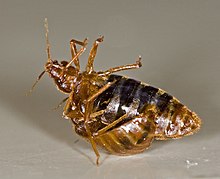
Cult-style brainwashing? Not really a thing. As a matter of fact, cults are barely able to keep anyone around — nearly all members leave within two years. In retrospect, the whole cult hysteria of the 60s and 70s — including support from courts of kidnapping voluntary, adult cult members for “deprogramming” — seems to have been more or less a moral panic. Yet another reminder that moral panics are very dangerous and hard to resist (I can think of at least one going on currently, and another in the past few years).
Research from Gwern, who I completely trust to present the research thoroughly and dispassionately.
Psychologists searched in vain for a prevalence of “authoritarian personalities,” neurotic fears, repressed anger, high anxiety, religious obsession, personality disorders, deviant needs, and other mental pathologies. They likewise failed to find alienation, strained relationships, and poor social skills. In nearly all respects – economically, socially, psychologically – the typical cult converts tested out normal. Moreover, nearly all those who left cults after weeks, months, or even years of membership showed no sign of physical, mental, or social harm. Normal background and circumstances, normal personalities and relationships, and a normal subsequent life – this was the “profile” of the typical cultist.
…Numerous studies of cult recruitment, conversion, and retention found no evidence of “brainwashing.” The Moonies and other new religious movements did indeed devote tremendous energy to outreach and persuasion, but they employed conventional methods and enjoyed very limited success. In the most comprehensive study to date, Eileen Barker (1984) could find no evidence that Moonie recruits were ever kidnapped, confined, or coerced (though it was true that some anti-cult “deprogrammers” kidnapped and restrained converts so as to “rescue” them from the movement). Seminar participants were not deprived of sleep; the food was “no worse than that in most college residences;” the lectures were “no more trance-inducing than those given everyday” at many colleges; and there was very little chanting, no drugs or alcohol, and little that could be termed “frenzy” or “ecstatic” experience (Barker 1984). People were free to leave, and leave they did – in droves.
Barker’s comprehensive enumeration showed that among the relatively modest number of recruits who went so far as to attend two-day retreats (claimed to be Moonies’ most effective means of “brainwashing”), fewer than 25% joined the group for more than a week, and only 5% remained full-time members 1 year later. Among the larger numbers who visited a Moonie centre, not 1 in 200 remained in the movement 2 years later. With failure rates exceeding 99.5%, it comes as no surprise that full-time Moonie membership in the U.S. never exceeded a few thousand. And this was one of the most successful cults of the era! Once researchers began checking, rather than simply repeating the numbers claimed by the groups, defectors, or journalists, they discovered dismal retention rates in nearly all groups. [For more on the prevalence and process of cult defection, see Wight (1987) and Bromley (1988).] By the mid-1980s, researchers had so thoroughly discredited “brainwashing” theories that both the Society for the Scientific Study of Religion and the American Sociological Association agreed to add their names to an amicus brief denouncing the theory in court (Richardson 1985).
(quoted section is from Iannaccone 2003, “The Market for Martyrs”)
Notes on Brainwashing & ‘Cults’ – LessWrong









